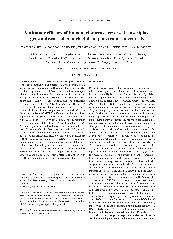摘要
Human telomerase reverse transcriptase (hTERT) is the key component of telomerase catalytic activity, and is associated with tumorigenesis. Recent evidence suggests that the down-regulation of hTERT could rapidly induce an antiproliferative effect in tumor cells, independent of the telomereelongating function of the enzyme. To test the immediate antitumor efficacy of this down-regulation, antisense oligodeoxynucleotides (AS-ODN) targeting hTERT mRNA were transfected into two human pancreatic cancer cell lines in vitro. In both cell lines, single transfection with AS-ODN decreased the level of hTERT mRNA expression in a dose-dependent manner (from 0.05 to 0.2 mu M), while transfection with 0.2 mu M hTERT AS-ODN for 24 h achieved the maximum clown-regulation of hTERT mRNA. Additionally, 0.2 mu M AS-ODN significantly reduced telomerase activity in the cell lines. However, after the first transfection with 0.2 mu M ASODN, almost no inhibition of cell proliferation was observed in either of the lines, while multiple consecutive transfections with the same concentration of AS-ODN resulted in a continuous reduction in cell viability, the significant inhibition of colony formation ability and increased cell apoptotic rates. Cell cycle analysis indicated that hTERT AS-ODN mainly arrested the cell cycle at the G0/G1 phase in the cells. The data validate an antisense oligonucleotide approach to hTERT inhibition therapy in pancreatic cancer cells.
